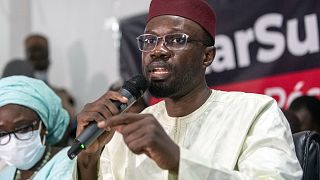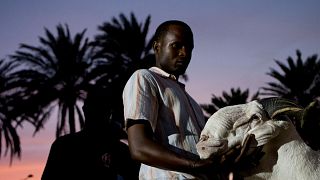Senegal
After weeks of mounting tension between Senegal’s executive and the opposition-controlled Parliament, President Bassirou Diomaye has dissolved the National Assembly.
The move fulfills the wishes of the president's supporters, but it has sparked a heated debate among Senegalese citizens.
"It’s in their interest"
Aïssatou Diallo, a local observer, suggests the decision is strategic: “If they dissolve the Assembly, it's because they see it serving their interests. But the real priority should be allowing the new government time to implement its program for the benefit of the people.”
A Legal Move, But Controversial
Supporters of the decision, like Seydou Sow, argue it’s not only legal but necessary given the current political landscape. “The dissolution of Parliament is a good decision considering the Assembly no longer aligns with the president's ambitions. He hasn’t broken any laws,” Sow said.
However, the opposition views the action as a political maneuver. They’ve raised concerns about how quickly elections are being organized, questioning the legality of bypassing the controversial sponsorship law.
"A rush to manipulate the elections"
Moussa Diakhaté, an opposition MP, criticized the president’s approach: “They want elections in 60 days, but what about the law on sponsorship? Where’s the Constitutional Council’s opinion? This is just another way to manipulate the public and cheat in the upcoming elections.”
Uncertainty Ahead for Both Sides
As the country prepares for legislative elections on November 17, the stakes are high. The opposition hopes to force a power-sharing arrangement, but analysts suggest they face significant challenges. Political expert André Bakhoum warns that fragmented opposition lists could favor the government in Senegal’s winner-takes-all system.
“If the newly emerging majority holds after March 2024, the opposition will need to rethink its strategy to adapt,” Bakhoum said.
With both sides gearing up for what promises to be a fierce electoral contest, uncertainty looms over the political future of Senegal.












01:17
Leaders of five African countries head to Washington to meet Trump
01:07
Senegal indicts fifth former minister amid intensifying anti-corruption campaign
Go to video
Senegal goes after Macky Sall era officials with amnesty law change
Go to video
Senegal: IMF calls for immediate reforms to address budget irregularities
Go to video
Senegal's Diomaye Faye posts mixed scorecard after year in office
11:02
Senegal’s Debt and Deficit: A Harsh Economic Reality [Business Africa]